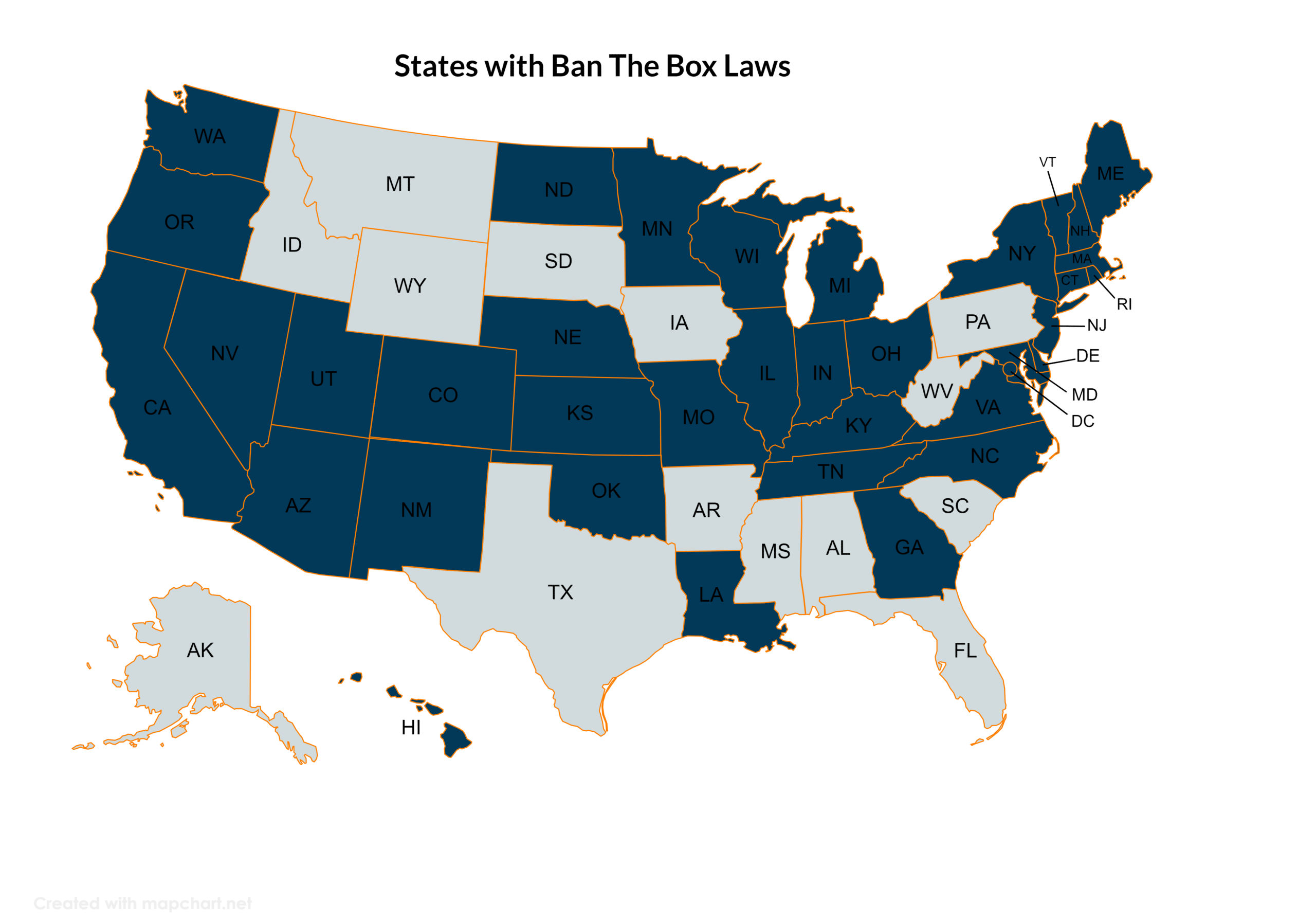"Giving everyone a fair chance, one application at a time."
Helpful Resources
What are Ban the Box Laws?
"Ban the Box" laws are designed to promote fair employment practices, particularly for individuals with prior criminal records. As an employer, these laws prohibit you from asking job candidates about their criminal history at the initial stages of the application process. Instead, you must postpone this inquiry until later stages, often until after you have extended a conditional job offer.
Furthermore, if you later discover that a candidate has a criminal record, you can only rescind the job offer if their past convictions are directly related to the duties and responsibilities of the position. Additionally, each state may have specific regulations regarding the time frame during which you can consider a candidate's criminal history and the types of convictions that are relevant to the position. It's important to familiarize yourself with the laws in your state to ensure compliance.
The History: Ban the Box and Fair Chance Act Philosophy
The "Ban the Box" movement began in the late 1990s when civil rights groups started advocating for the removal of the checkbox on job applications that asked whether applicants had a criminal record. The idea was to give people with criminal records a fair chance at employment by delaying inquiries into their criminal history until later in the hiring process, typically after an initial interview or a conditional job offer. Hawaii was the first state to pass Ban the Box laws in 1998. The idea of Ban the Box was created from the belief that people with criminal records have trouble finding jobs, and lack of employment makes reoffending much more likely.
Since Hawaii’s enactment, 26 other states and cities have enacted their own unique versions of Ban the Box Laws. The philosophy behind "Ban the Box" and Fair Chance Act legislation is to reduce employment barriers for individuals with criminal records, thereby promoting their successful reintegration into society. By delaying questions about criminal history, employers are encouraged to focus on the qualifications and merits of all applicants before considering any past convictions.
The Fair Chance Act is specific to federal agencies and their contractors and prohibits them from requesting criminal background information from applicants prior to extending an offer. It went into effect in December of 2021. The Equal Employment Opportunity Commission (EEOC) currently advises that employers who run background checks are careful to assess a person’s criminal history and how it relates specifically to the risks and responsibilities of the job to avoid discrimination lawsuits.
Guidelines for Handling Candidate Background Information
Navigating the Patchwork: Ban the Box Laws Across States
Ban the Box laws can vary from state to state and city to city. While the basic premise remains the same — delaying inquiries into a candidate's criminal history until later in the hiring process — the specific regulations and requirements can differ.
For example, some states may have more extensive restrictions on when and how employers can inquire about an applicant's criminal history, while others may have fewer limitations. Additionally, certain cities may have their own local ordinances that impose additional requirements on employers beyond those mandated at the state level.
Therefore, it's essential for employers to familiarize themselves with the Ban the Box laws specific to their state and any relevant local ordinances to ensure compliance with all applicable regulations.
To stay current on Ban the Box states and cities, please click on the Map for details.




































